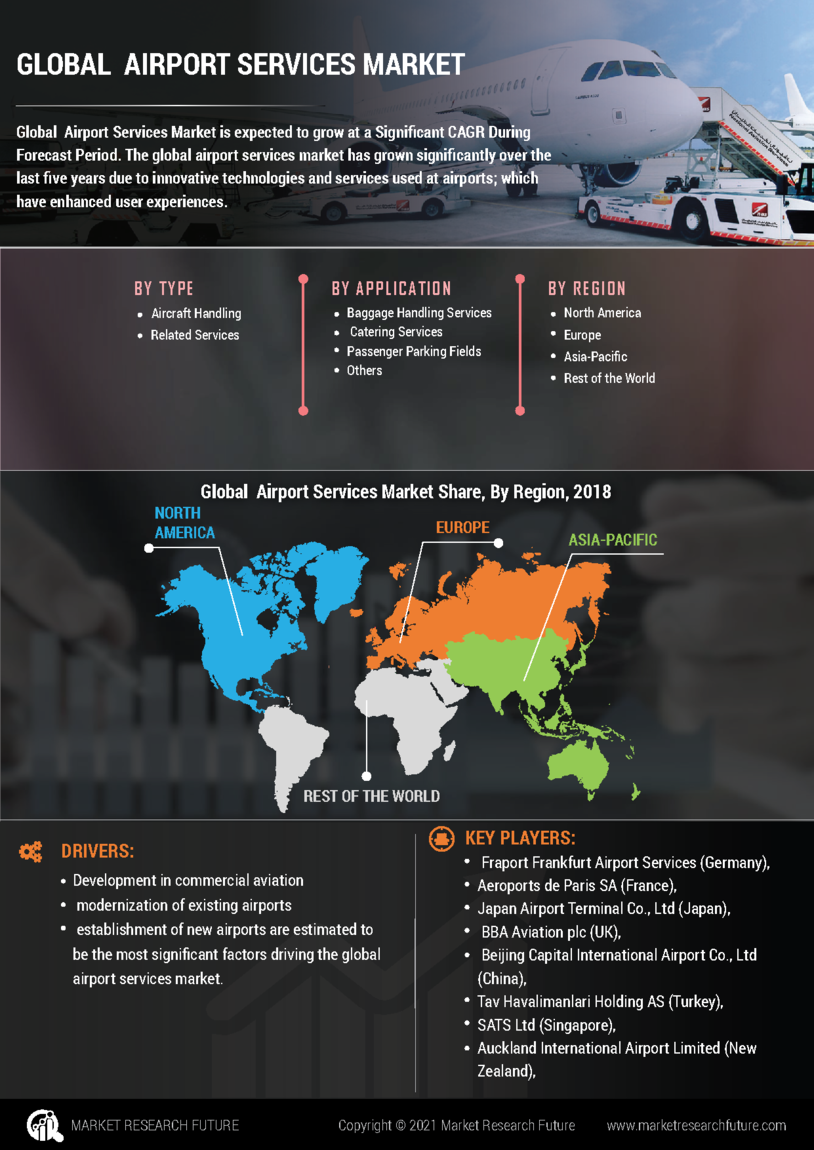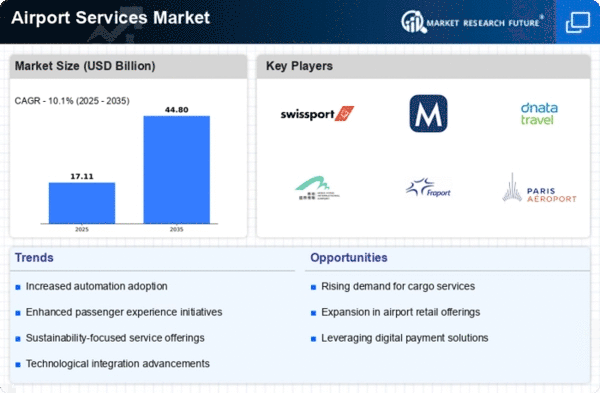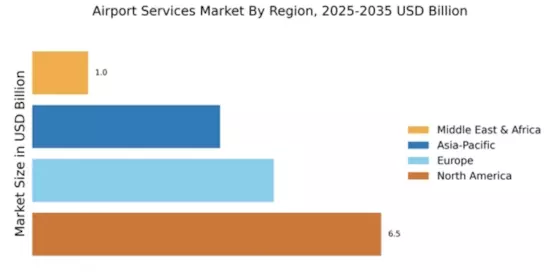Sustainability Initiatives
Sustainability has emerged as a critical focus within the Global Airport Services Market Industry, as airports strive to reduce their environmental impact. Initiatives such as carbon offset programs, energy-efficient terminal designs, and the use of renewable energy sources are becoming increasingly prevalent. Airports are also exploring sustainable aviation fuels to minimize emissions. These efforts not only align with global environmental goals but also appeal to environmentally conscious travelers. As sustainability becomes a key differentiator, airports that prioritize these initiatives may enhance their competitive edge and attract more passengers, thereby contributing to market growth.
Emergence of Smart Airports
The concept of smart airports is gaining traction within the Global Airport Services Market Industry, characterized by the integration of digital technologies to enhance operational efficiency and passenger experience. Smart airports utilize Internet of Things (IoT) devices, real-time data analytics, and mobile applications to streamline processes such as check-in, security screening, and boarding. This trend is expected to grow as airports seek to adapt to the evolving needs of travelers. The implementation of smart technologies not only improves efficiency but also fosters a more personalized experience for passengers, potentially driving increased loyalty and repeat business.
Increasing Air Traffic Demand
The Global Airport Services Market Industry is experiencing a notable surge in air traffic demand, driven by rising disposable incomes and a growing middle class worldwide. In 2024, the market is valued at approximately 63.8 USD Billion, reflecting the increasing number of passengers traveling by air. This trend is expected to continue, with projections indicating that by 2035, the market could reach 551.5 USD Billion. The expansion of low-cost carriers and the introduction of new routes further contribute to this growth, suggesting a robust future for airport services as they adapt to accommodate the increasing volume of travelers.
Government Investments in Infrastructure
Government investments in airport infrastructure are a significant driver of growth in the Global Airport Services Market Industry. Many countries are recognizing the importance of modernizing their airport facilities to accommodate increasing passenger volumes and enhance operational efficiency. These investments often include expanding runways, upgrading terminals, and improving air traffic control systems. For instance, several nations have allocated substantial budgets for airport development projects, which are expected to yield long-term economic benefits. As these infrastructure improvements take shape, they are likely to bolster the overall market, facilitating smoother operations and improved passenger experiences.
Technological Advancements in Airport Operations
Technological innovations play a pivotal role in enhancing the efficiency of airport operations within the Global Airport Services Market Industry. Automation, artificial intelligence, and advanced data analytics are being integrated into various airport services, such as baggage handling and passenger processing. These advancements not only streamline operations but also improve the overall passenger experience. For instance, biometric screening technologies are being adopted to expedite security checks. As airports invest in these technologies, they are likely to see improved operational efficiency and customer satisfaction, which could further drive market growth in the coming years.


















